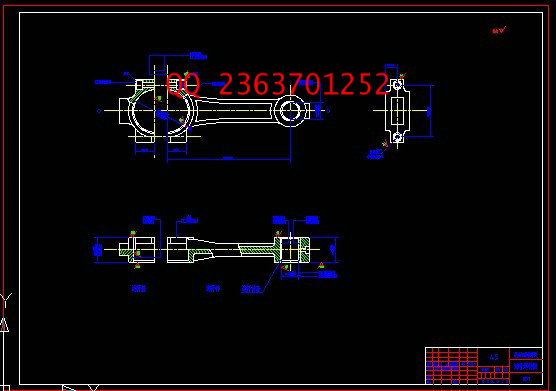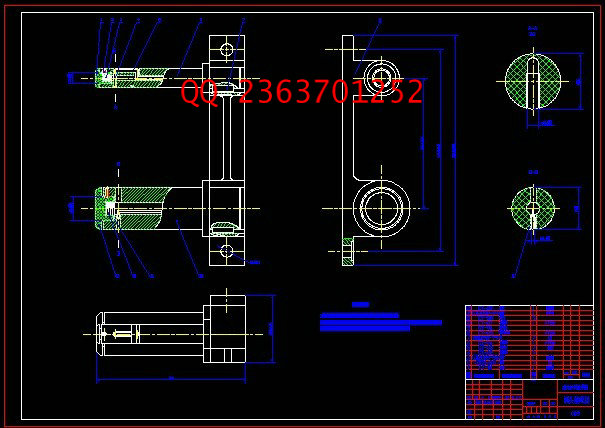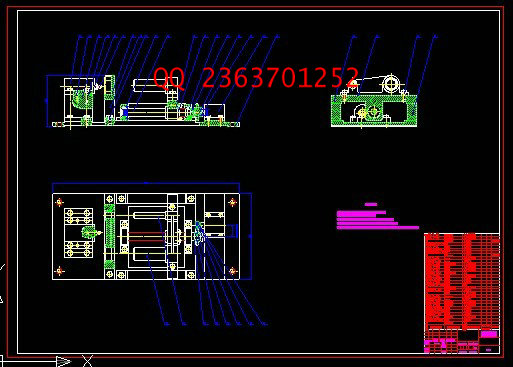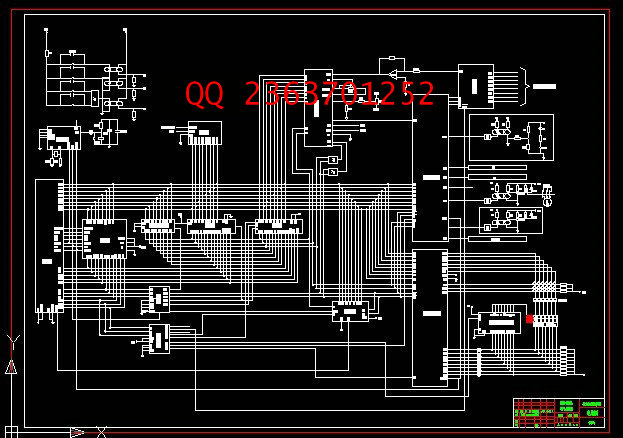 |
 |
|


|
设计名称 |
连杆平行度测量仪设计 |
 |
|
设计编号 |
n090 | |
|
设计软件 |
AutoCAD, Word | |
|
包含内容 |
见右侧图片 | |
|
说明字数 |
23000字 | |
|
图纸数量 |
见右侧图片 | |
|
推荐指数 |
较高 | |
|
价格: |
价格优惠中 | |
|
整理日期 |
9.26 | |
|
整理人 |
小林 | |
|
购买流程 |
<查看如何购买本站设计> |
|
设计简介 |
设计描述:
文档包括: 设计word版本说明书一份,共51页,约23000字
连杆是汽车发动机的主要传力构件之一,常处于高速运动状态,因此要求与其它零件间具有较高的配合精度。因而连杆检测成了生产中频繁而又不可缺少的环节。连杆平行度测量仪是专门为检测汽车连杆而设计的专用测量工具,其结构简单、测量精度高。本设计是由机械系统设计和控制系统的设计所组成。包括齿轮传动的设计及选择,滚珠丝杠的设计及选择,步进电机的选择和装置中机械系统的设计,有关测试系统的控制设计及选择。我的设计内容主要是机械部分的设计。 关键词: 连杆 平行度 检测 Abstract The connecting rod is one of motor car engine main power transmission components, often being at the high speed state of motion, therefore, which requests the higher grade of fit with other components. Thus the connecting rod i****amined in the production to be frequent and the also essential link. The connecting rod parallelism measuring instrument is specially for examines for measuring tool which the automobile connecting rod design, its structure is simple, the measuring accuracy is high. This design is composed by the mechanical system design and the control system design, which includes the gear drive design and the choice, the ball bearing guide screw design and chooses, motor machine choice and installment mechanical system design, relating test system control design and choice. My design content mainly focuses on the machine part design. Key words:Connecting rod parallelism examination
目 录
第1章 绪论 ……………………………………………………………………1 |
|
部分图纸 截图 |
    |
|
说明: |
如需了解本设计的具体详细信息请联系本站客服,说明看哪个设计(编号)哪个详细部分,我们将远程或截图给您观看. 机械毕业设计|论文 |

| [要求PR≥2,百度收录≥1000页;联系QQ:178308054] |
Powered by 小林机械资料商城 © 2013-2020 All Rights Reserved. 客服QQ:178308054
喜欢www.xiaolinbysj.com,请告诉你QQ上的5位好友,多谢您的支持! 皖ICP备2021006205号-1
